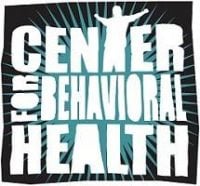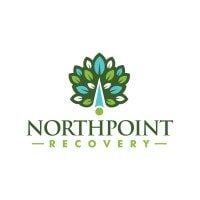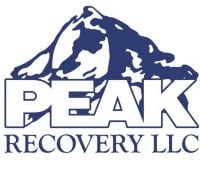
Peak Recovery
Drug Rehab Center in Caldwell, Idaho
- Opioid Addiction
- Dual Diagnosis
- Drug Addiction
- Alcoholism
Peak Recovery is a rehab center located in Caldwell, Idaho that provides comprehensive treatment plans, including therapies like CBT, DBT, and EMDR, as well as an aftercare program to support individuals struggling with addiction and substance abuse disorders.
About Peak Recovery in Idaho
Peak Recovery in Caldwell, Idaho is an addiction treatment facility offering comprehensive care for those suffering from alcohol and drug abuse. Their 10 bed facility provides 24-hour inpatient care from a team of experienced and devoted counselors and staff. Peak Recovery’s personalized approach to treatment emphasizes a holistic approach to healing that includes individual and family counseling, group therapy, and medical care. They further provide aftercare support to help patients integrate back into their communities with greater ease and success.
Peak Recovery takes pride in offering evidence-backed treatment programs for those suffering from a wide array of addictions, such as alcohol and drug abuse, opioid addiction, dual diagnosis, and more. Their addiction treatment services include drug rehab, dual-diagnosis, and outpatient levels of care. The team is also licensed and accredited by the state of Idaho as well as nationally accredited by the Commission on Accreditation of Rehabilitation Facilities (CARF). They accept a broad range of private health insurance plans such as Cigna and United Healthcare, so that patients can gain access to high-quality, affordable care.
Genders
Ages
Modality
Additional
Conditions and Issues Treated
Opioid addiction has become a significant health problem in the United States. In 2015, there were 91 opioid overdose-related deaths per day, with a substantial increase in mortality rate in 2014.
When opioid addiction has reached a point where a person’s life becomes unmanageable, treatment options are available to help them get sober. Treatment that includes medical care with medications and counseling can help a user transition into sobriety.
When someone in struggles with both addiction and mental or emotional illness, this is considered a dual diagnosis. Dual diagnosis treatment can include therapy for these issues to happen simultaneously, which will allow either of them to be treated effectively.
Sometimes people who have suffered from addiction disorder also suffer from co-occurring disorders such as depression, anxiety, bipolar disorder, etc., making them “dual diagnoses.” Dual diagnoses require specialized treatment programs where drug and alcohol addiction are addressed along with psychiatric illnesses. Some rehabilitation facilities provide patients suffering from cooccurrences a program with highly integrated services and a clean environment with few distractions to help them succeed.
Levels of Care Offered
This center offers a variety of custom treatment tailored to individual recovery. Currently available are Aftercare Support, Drug Rehab, Dual-Diagnosis, Outpatient, with additional therapies available as listed below.
Outpatient treatment is often used for drug addicts in drug rehab. Outpatient treatment consists of counseling and therapy sessions. This form of treatment is also called ‘day-treatment’. The outpatient treatment process begins with the addict’s initial detox period, lasting about ten days.
Outpatient treatment is used for those who are at moderate risk for ‘slipping back’ into the addiction, for those who:
- Are not currently experiencing any side effects from withdrawal and can handle social pressure
- Can handle stressors that might trigger relapse
- Have a stable living environment or have moved out of their previous environment, which was not conducive to being sober
- Have a support system that allows them to go to a facility a few times a week while still keeping their current responsibilities
- Have no legal obligations, being either on parole or probation, that require them to seek treatment at a mandatory facility
- Are not currently experiencing any side effects from withdrawal and can handle social pressure
- Have a stable living environment or have moved out of their previous environment, which was not conducive to being sober
Completing a drug or alcohol rehab program is only the first step. Then comes aftercare support. These services include sober living accommodations, career counseling, and AA/NA programs for those struggling with sobriety or who want help maintaining it after initial rehab at an addiction facility.
They can last up to a year or more depending on what’s needed most urgently after the earlier stages are completed.
Therapies & Programs
Because no single treatment is effective for all addicts, the goal of treatment and therapy should be to figure out what works best for each individual. Tolerance and withdrawal levels differ from person to person, affecting the treatment intensity required. Addiction treatment should aim to help addicts develop healthy coping mechanisms for dealing with their addiction and its underlying causes.
Group therapy can help build a stronger support system and give addicts in Caldwell, ID insight into their addiction that they gain through shared conversations. Group therapy occurs in a controlled group environment, exclusive of one on one meetings. This makes it safer for patients to feel comfortable sharing the struggles they’re going through and gaining perspective.
Cognitive-behavioral therapy is a technique that is used to help people with addiction. Specifically, it is a way of identifying thoughts and behaviors that cause the addiction. It is typically used in an individual counseling session.
The content explains cognitive behavioral therapy and how it works to address some behaviors that may be leading to unintended consequences in their life, as well as its benefits for those seeking sobriety.
It works by helping people to talk through their issues and addressing the thoughts that cause said behaviors. It is an excellent way of learning about oneself and one’s perception of the world.
Life Skills Services assist addicts in their recovery by teaching them healthy coping mechanisms that will aid them in becoming sober, focussing on helping people enter into, and maintaining long-term sobriety. Drug Treatment Centers provide Life Skills Services at varying levels of intensity, specific to the needs and requirements of each patient.
The benefits of Life Skills Services offered at Peak Recovery:
- Restores hope and empowerment — Helps addicts believe that recovery is possible and instills a new confidence in their ability to achieve a positive, drug-free future
- Enhances family involvement — Encourages families to get involved in the recovery process and supports their understanding and encouragement of healthy behavior.
- Increases patient’s compliance — Helps patients take responsibility for and ownership of their recovery and encourages continued progress
- Reduces relapse rates — Encourages long-term abstinence and emphasizes the importance of establishing sober support systems.
Payment Options Accepted
For specific insurance or payment methods please contact us.
Is your insurance accepted?
Ask an expert, call (888) 674-0062
Additional Details
Specifics, location, and helpful extra information.
Caldwell, Idaho 83605 Phone Number(208) 455-1788 Meta DetailsUpdated November 25, 2023
Staff Verified
Peak Recovery Patient Reviews
There are no reviews yet. Be the first one to write one.
Caldwell, Idaho Addiction Information
In 2010, Idaho ranked amongst the top ten states of substance abuse in several categories. Alcohol dependence and abuse pose a major problem throughout the state, especially among minors between the ages of 12 and 17 years old. Opioids, like everywhere else in the nation, are also responsible for many substance abuse problems in the Gem State.
Caldwell, Idaho, has a significant drug addiction problem. According to recent statistics, over 1,000 admissions to rehab centers due to drug abuse in the city in 2016. This is a significant number and points to the seriousness of the drug addiction problem in Caldwell. There are various support networks and assistance in Caldwell, ID, to assist people to keep their sobriety and have a good life.
Treatment in Nearby Cities
- Lewiston, ID (191.0 mi.)
- Saint Maries, ID (253.6 mi.)
- Priest River, ID (313.7 mi.)
- Garden Valley, ID (47.0 mi.)
- Soda Springs, ID (264.5 mi.)
Centers near Peak Recovery
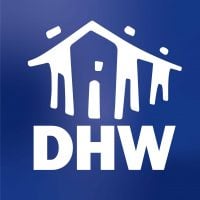
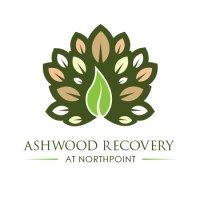
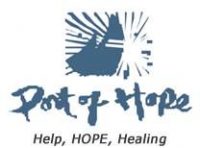
The facility name, logo and brand are the property and registered trademarks of Peak Recovery, and are being used for identification and informational purposes only. Use of these names, logos and brands shall not imply endorsement. RehabNow.org is not affiliated with or sponsored by Peak Recovery.




